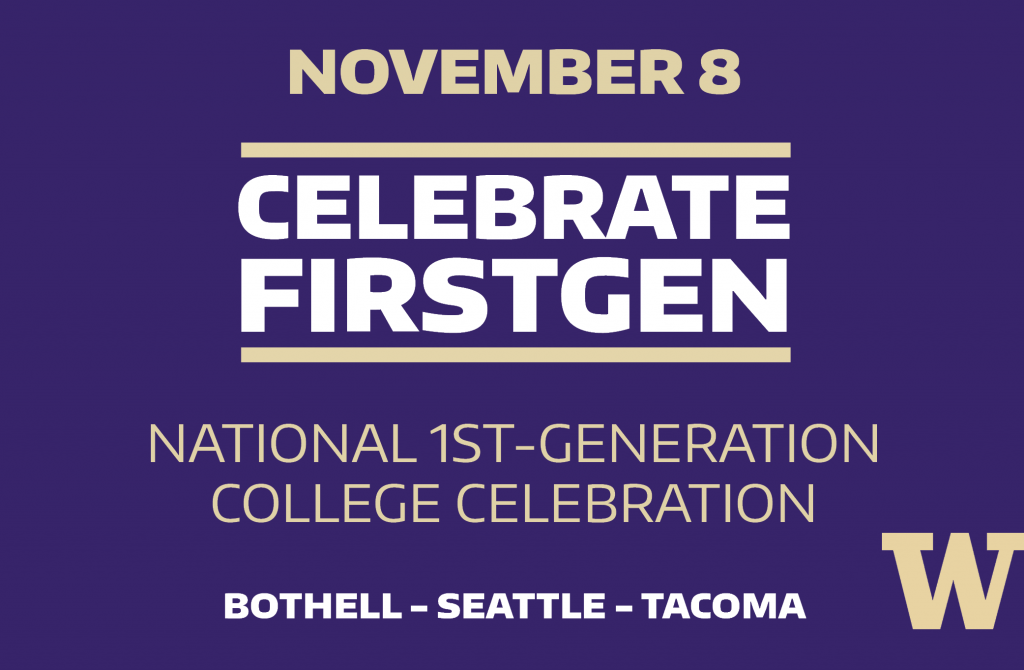
In honor of the National First-Generation College Celebration on November 8, our latest Allen School spotlight highlights some of our own first-gen community members. Approximately 20 percent of the school’s undergraduate student body is the first in their family to pursue a four-year degree. Each is an academic trailblazer, navigating their way through the entire college experience as the first in their family to pursue a bachelor’s degree. Some are still finding their footing with the help of Gen1, a new student group for first-gen students, while others have been there, done that. These folks were eager to share what they have learned along the way.
Jun Hu, undergraduate student
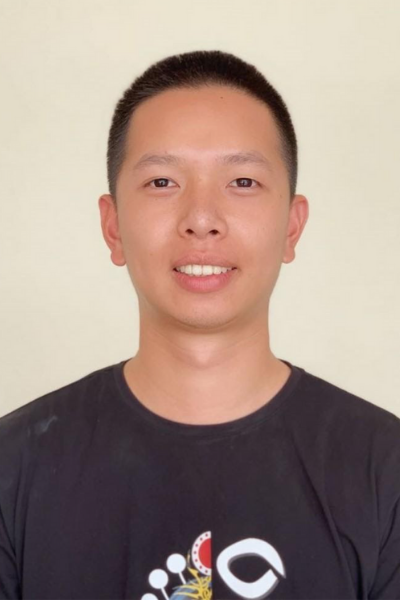
Jun Hu is a transfer student from Everett Community College originally from Canton, China. He moved to the United States in 2007, when he was 18. His interest in computer science began when his uncle, a computer software engineer, stayed with his family while Hu was in high school. When he moved to the U.S., Hu joined the Navy. While serving in the military, his interest in computer science grew as he noticed the constraints of the programs he was using and wanted to do something about it.
Allen School: As a first-generation student in a new country, how did you navigate through the college system?
Jun Hu: I went to college in China very briefly after high school — though the college experience was quite different compared to the states. Here you have so much freedom both socially and academically. I was quite lost. I did not know my education plan and just how life goes in general. Luckily, my adviser gave me a degree plan and it cleared up a bit. That was the first time I went to college after I moved to the states. After that, I took several classes when I was in the Navy, and the experience I learned from that helped me a lot. I was enrolled at Everett Community College but decided to transfer to the UW. I chose to do this because the CSE program in the Allen School is decent and there are a lot of resources and extracurricular activities to help you succeed.
Allen School: What does being a first-gen student mean to you?
JH: As a first-generation student, I felt it could be challenging sometimes because there is not much information you can obtain from your parents about college life in general. It is just a new experience that you have to go through on your own and figure things out along the way.
Allen School: What is your favorite part about being in the Allen School?
JH: It has been a pleasure to work with the advising team from the Allen school. Despite having been to several colleges, transferring to a new university is still difficult because each school has its own system on handling registration and navigating around the campus. Luckily, my adviser has been working with me since I got accepted so it made the transaction much easier. The teaching assistants and office hours in my classes are extremely helpful for me this quarter because the difficulty of the classes is much higher and online learning has created more barriers for me.
Allen School: What advice do you have for future first-gen students?
JH: The most important advice I have is to reach out for help. You are not alone in this process, there is a lot of help and opportunity for students to succeed. Most of the schools even have programs for first-gen students. The academic adviser is your friend. They will provide you some pathway when you are not sure what to do. The tutoring center is a fun place to hang out. You are able to get help with your school work and maybe meet some new friends that are also studying your field. Also, don’t be afraid to make mistakes and go explore new things. Join a student organization or be part of the student government and get involved. College is not only a place to obtain higher education, but also a place to know more about yourself. You will be surprised that you have more talents than you thought. By doing something you may find new goals and figure out what you really want to do.
Eman Mustefa, undergraduate student
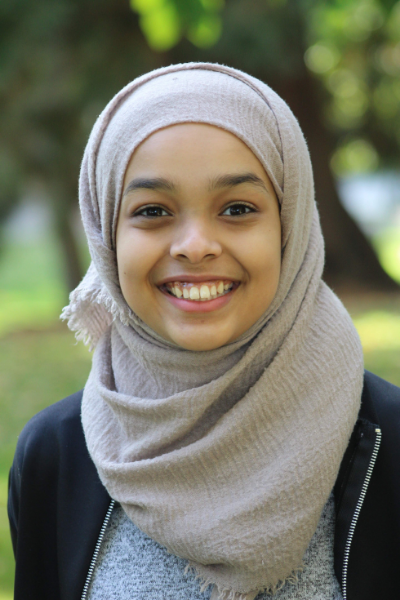
As a child of immigrants, Eman Mustefa, a sophomore from Federal Way, Washington, said she was expected to go to college. Her mother, who briefly attended community college, supported her in every way she could, despite not knowing much about the college process in the United States. Growing up in western Washington, Mustefa knew as early as second grade that she wanted to attend the UW. With an interest in technology and computers, and a few hours of programming under her belt from attending “Hour of Code” days in high school, her choice was to enroll in the Allen School.
Allen School: As a first-generation student, how did you navigate through the college system?
Eman Mustefa: I was very overwhelmed at first because I had not thought much about applying to college until the very end of my junior year. It felt like all of my other classmates had been prepping since the first day of high school, and I hadn’t done that at all. Luckily I had a really strong support system. My cousin was an instrumental part during my college application process. She was in her last year of college and was able to guide me to some of the resources that helped her and revise most of my essays. My aunt and uncle were also very supportive and along with my mom, they all took turns dropping me off and picking me up at every tour, testing location and interview. Although my mom knew she couldn’t help me with many parts of the process, she helped in any way that she could.
Allen School: What does being a first-gen student mean to you?
EM: Being a first-generation graduate means thanking my family for all the support and encouragement that they have given to me throughout the years, and showing them it was all worth it. It means showing others from first-generation backgrounds that it is possible and you don’t have to be a “traditional computer science student” in order to succeed in the field.
Allen School: What is your favorite part about being in the Allen School?
EM: My favorite part about working and being at the Allen School is hearing about everyone’s various backgrounds. I think in many people’s minds when we hear computer science we think about a monolith but in reality, each person that goes here is so different.
Allen School: What advice do you have for future first-gen students?
EM: I would tell them that even though it may feel like you are alone, you are not. There are so many different communities and people in the Allen School that are here for you, GEN1, a club I founded with a couple of my friends last year for first-generation college students, was made for that very reason. So know that you have a support system, even when it feels tough and it’s impossible, they are there to cheer you on to keep going.
Joyce Zhou, master’s student
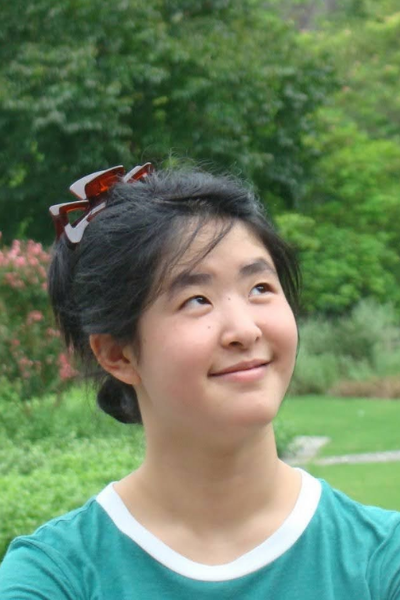
As a high school student, Joyce Zhou was accepted into the UW Academy, an early university admission opportunity for 10th grade students in Washington. They enjoyed their computer science classes in high school and had a great Advanced Placement computer science teacher, so it was only natural for them to continue their studies at the UW. After a successful undergraduate experience, they decided to continue as a graduate student in the Allen School’s fifth-year master’s program, working with professor Daniel Weld in the Lab for Human-AI Interaction.
Allen School: As a first-gen student, how did you navigate through the application and enrollment process?
Joyce Zhou: Because I got into the UW Academy, I was lucky not to have to navigate the entire college search process, just the requirements for applying to UW only. That still meant taking the SAT/ACT and writing several application essays, though. The Robinson Center provided lots of materials that described what to expect from the process. My parents, being Chinese, are super familiar with the idea of preparing for exams so I was set on test prep and high school grades, but for personal statement writing I used a lot of online guides.
Once I actually got into college, I learned from other people in my Academy cohort how to handle coursework. Online forums like Reddit were also really good for answering questions about undergraduate research and how to get involved. Unfortunately, I never got as familiar with the social part of college — such as networking and transitioning to adulthood — so I’m still struggling today with that. There’s been tons of helpful people along the way: high school teachers, advisers, TAs and resident assistants.
Allen School: What is your favorite part about being in the Allen School?
JZ: The people! Maybe I’m biased because I’m a grad student now, but I love that within the school it’s such a casual environment. There’s the openness between instructors, TAs, and students, tiny fun things that people pin up on lab windows or room number cork boards, events preceded by friendly jokes. Also the part where the actual people I know and talk frequently with are cool and do cool things.
Allen School: What advice do you have for future first-gen students?
JZ: Get to know people, as much of a wide range of people as possible — fellow first-gen students, grad students, advisers — and build or join some sort of friend support group. Also, don’t be afraid to ask questions or lurk on online forums as well, if there’s a question you have about how college works it’s almost certain someone has answered it online before.
Elise deGoede Dorough, staff
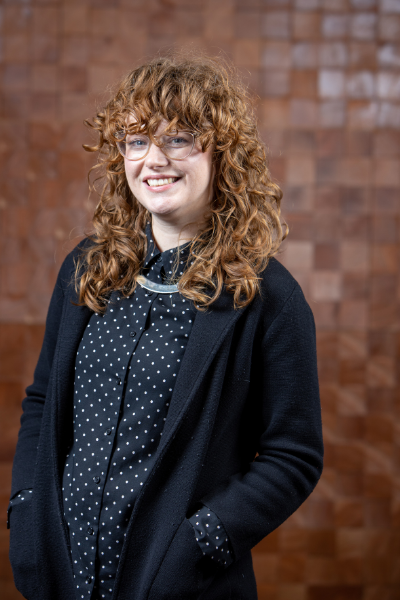
Elise deGoede Dorough, originally of Sumner, Washington, is the Allen School’s director of graduate student services. Her grandparents, who immigrated from the Netherlands, met in western Washington and started TulipTown, a tulip bulb farm in Mt. Vernon. While her father went into the family business after high school, he wanted deGoede Dorough and her brother to have other options and encouraged them to go to college. She relied on teachers and peers to coach her through which classes to pick and which standardized tests to take. In the end, the UWwas the only school she applied to, as it was the only in-state school she was interested in attending.
Allen School: Did being a first-gen student influence your career?
Elise deGoede Dorough: I think it did influence my career. As an undergraduate, the UW was so big to me. When I look back, I realize that I needed more support but really didn’t know where to find it. Especially as a pre-major, I didn’t know who I could talk to about which major to pursue and how I should be preparing for different career paths. I also worked nearly full-time as a server in a restaurant from the summer of my freshman year all through the remainder of college, so I didn’t have a ton of extra time for any kind of exploration. My freshman year I ended up earning a 4.0 in my psychology class so I eventually chose that as my major without ever speaking to a staff adviser or a faculty member.
I was an introvert and maybe because of that I always first tried to find the information I needed online. So I read up on the course requirements, processes for declaring a major, etc. and submitted the paperwork. By the time I graduated I had probably only seen a staff adviser about three times in total. At that point, I had no idea that becoming an academic adviser, or working in student affairs in general, was a possible career path. I spent some years after college as a manager in the same restaurant I worked in through college, before I realized that I missed the rhythm of the academic year and I missed being on campus. I didn’t know what I would go back to school for, so instead I applied to fill in temp staff roles around campus. It was through those experiences that I realized working as a staff member for the UW was a possibility for me. Eventually I took an admissions and recruiting position at another college and went back to school for my Master’s in Education at the UW. Near the end of that program I was hired as an undergraduate adviser at the Allen School, and 10 years later here I am.
Allen School: What does being a first-gen student mean to you?
E dD: I would say opportunity and freedom to choose. Some people ask me why I didn’t go into the family business, and the answer is not because it wasn’t a good option. My dad and my younger brother, after going to college himself, are farming together now. I believe that our parents’ insistence that we both go to college and then make the choice of whether to join the family business or not was a good one. It gave us more time to learn what was out there and what we enjoyed doing. And it gave us the knowledge that we were in control of our path.
Allen School: What does working at the Allen School mean to you?
E dD: It might seem odd because I don’t have a background in computer science, but the Allen School is where I’ve really felt at home on the UW campus. I enjoyed my time as a student, and as I mentioned I love the rhythm of the academic year. But I never felt I had a specific home at UW even within the departments where I earned my degrees. I always felt anonymous and a little bit like an outsider, unsure of where my value or contributions were. But in CSE, as we called it when I joined, I have found ways to really make an impact, support students, and find fulfillment in that work.
Allen School: What advice do you have for future first-gen students?
E dD: Ask people where the resources are! I was so introverted and I thought I had to figure it out on my own. But there are people everywhere — peers, staff, faculty — who are more than willing to hear your questions and point you in the right direction. It can be very intimidating at first and students often apologize to me for asking questions. But, really, it’s my job to help and helping in that way is why I’m here.
Zachary Tatlock, professor
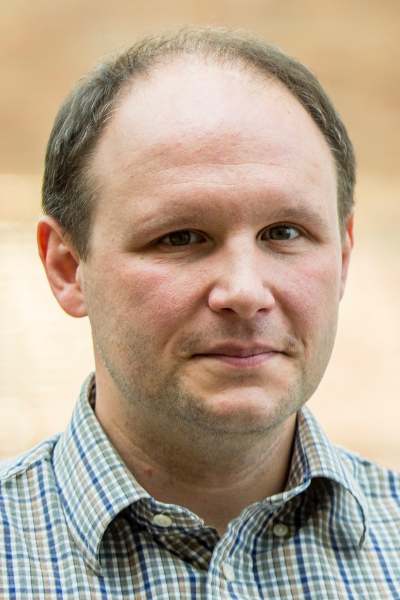
Allen School professor Zachary Tatlock grew up in a small southern Indiana town, where both of his parents also grew up. His father worked as a machinist and, after raising four children, his mother worked as a special education aide. His parents were supportive of his choice to go to college, but it was made clear that he would have to work hard and get a good scholarship. He did, which enabled him to enroll in Purdue University. Paging through the university’s booklet of majors, he chose computer science because it “sounded kind of like math but where you got to actually tinker and make things.”
Allen School: Why did you decide to continue your education and also become an educator yourself?
Zachary Tatlock: At Purdue I made some truly spectacular friends who had seemingly been programming since shortly after they started walking, while I knew relatively zip. I was again lucky that the community at Purdue was extremely supportive and helped a kid like me get up to speed. After my first year, I wanted to give back somehow, so I started TAing lab sessions for the introductory Java programming course. That went pretty well, and after a couple semesters I was put in charge of all the labs. I got to hire the friends who had helped me during my early struggles and we spent the next couple of years having a blast trying out all kinds of experiments, making new lab material and teaching it, and holding extra office hours late at night before project deadlines. I just couldn’t imagine leaving the academic computer-science community after only four years, so I decided to pursue a Ph.D. I wanted to make a career of hacking on interesting, diverse projects with brilliant friends from all over the world and helping share the joy of programming with students.
I was inspired by superb mentors like my undergraduate advisor, Suresh Jagannathan, who taught me that who you work with is more important than any particular project details, and my utterly amazing Ph.D. advisor, Sorin Lerner, taught me that academic research goes best when you put students first.
Allen School: What does being a first-gen student mean to you?
ZT: Being a first-generation student has meant bridging cultures, and more so the further I’ve gone down the academic path. Folks back home often don’t have much context to appreciate what researchers are doing with their hard-earned tax money; it can be difficult to convincingly justify why you and your friends worked hard for a year and then stayed up late for two weeks straight to make a piece of software that primarily exists just to be evaluated in a research paper. On the academic side, research colleagues often don’t have much context to appreciate the culture and norms of rural towns or so-called flyover states. In practice, it’s usually been best to just listen to folks and occasionally ask patient questions to help them hear what their ideas about “the other side” might sound like from a different perspective. Getting a college education has also provided other important, though more prosaic, benefits, like improving my ability to help support my family.
I also know that I have been unaccountably fortunate to end up with the career I’m in. I hope to pay it forward and smooth the way for other students who may not have had a clear path towards college or computer science.
Allen School: What do you like most about working at the Allen School?
ZT: The students are the very best part of the Allen School. Their enthusiasm, creativity, and incredible work ethic make every day a joy. I am also lucky to have some amazing colleagues who continue to challenge us all to grow and get better year after year. I love that I get to tackle new problems, meet new people, and learn new skills almost every day — this is a job that will never get boring. The Allen School culture weaves all these pieces together in a vibrant, close-knit community that cares a lot about young people; though Seattle is not a small town the Allen School feels like home.
Allen School: What advice do you have for future first-gen students?
ZT: Pay attention and be persistent! If you keep your wits about you and just keep going no matter how bad things look, you will often succeed. Even if you don’t win a particular battle, you will know that you have done your best and you will have learned some valuable lessons. I know that all sounds trite, but the fact is that many people who don’t make it just over-worry and overthink themselves out of success. Another thing to always remember is that you belong: even though many of your fellow students will have had very different upbringings and opportunities, college is especially for people like you.
We are grateful for the many contributions our first-generation students, staff and faculty have made to our campus and community!
Learn more about the National First-Generation College Celebration here, and activities celebrating UW’s first-generation community here.

